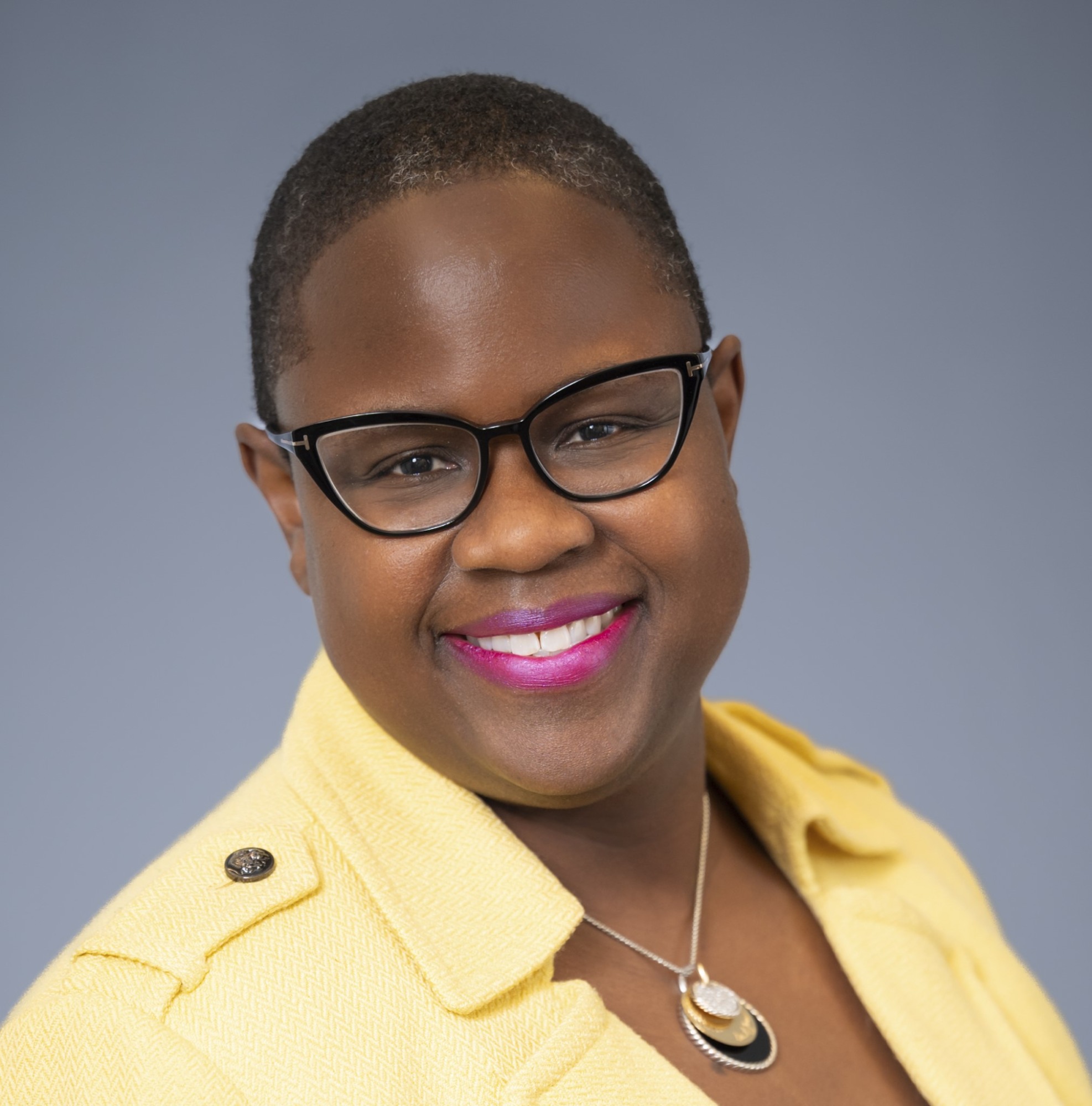
A leader in healthcare and a graduate of the IE Brown Executive MBA (EMBA) program, Michelle Johnson Tidjani ’24 EMBA embodies the values of innovation, excellence and inclusion in her leadership. As Senior Executive Vice President and Chief Administrative Officer at CommonSpirit Health, she is committed to driving meaningful change in healthcare, ensuring that communities receive exceptional care.
Tidjani will be formally recognized at the Master's Ceremony during Brown’s 257th Commencement and Reunion Weekend, where her achievements and contributions will be celebrated. She will also be moderator in a Weekend Forum on Saturday, May 24 from 9-10 a.m. in Friedman Hall 102 to discuss The Intersection of Place and Health: A Conversation on Health Equity in Urban and Rural America. She'll share her insights on the broader impact of healthcare and the importance of addressing community needs to achieve better outcomes.
We spoke with Tidjani about this recognition, her career journey and her advice to future leaders.
What was your experience in the IE Brown EMBA program? How did it shape your professional journey and leadership approach?
The EMBA program was something I had wanted to pursue for a long time. At the time, I was serving as the Chief Legal Officer at Henry Ford Health. My main goal in entering the program was to improve my financial acumen. What’s interesting, though, is that when I started researching programs, I realized that most of them could help me improve my financial knowledge, but IE and Brown’s program stood out because it wasn’t just an MBA; it was within a liberal arts context.
The program had some unique elements that I hadn’t seen in others, such as residences in different countries. The chance to go to South Africa and study what was happening in townships, to spend time in Madrid and to engage with the program in Providence — it was distinct. These experiences set this program apart and made it something special.
The diversity of the class was remarkable. By design, students came from all over the world, and as someone who considers myself a global citizen, I was really excited by the opportunity to learn alongside peers from so many different countries. Discussing global topics with people from different cultural and professional backgrounds was transformational for me — both personally and professionally.